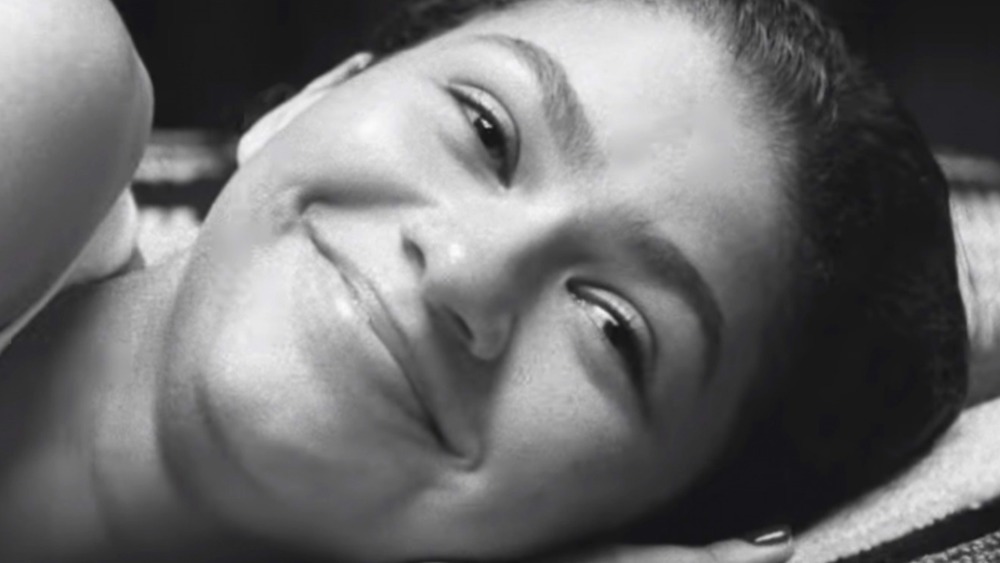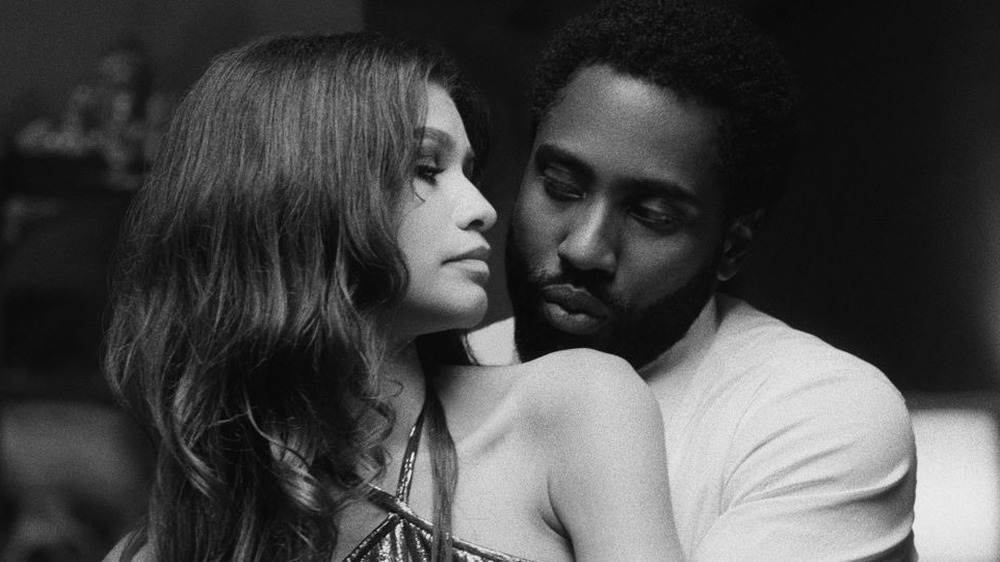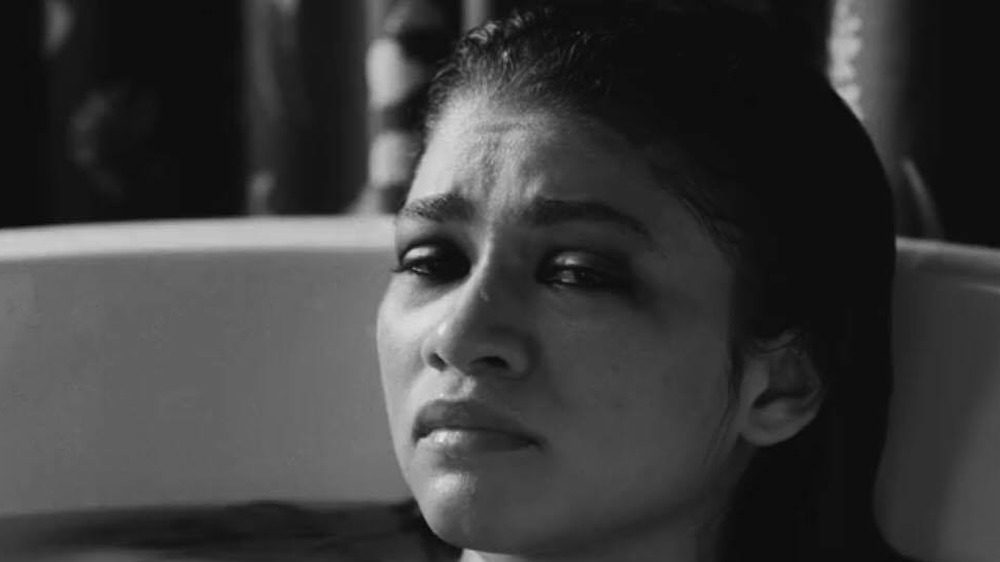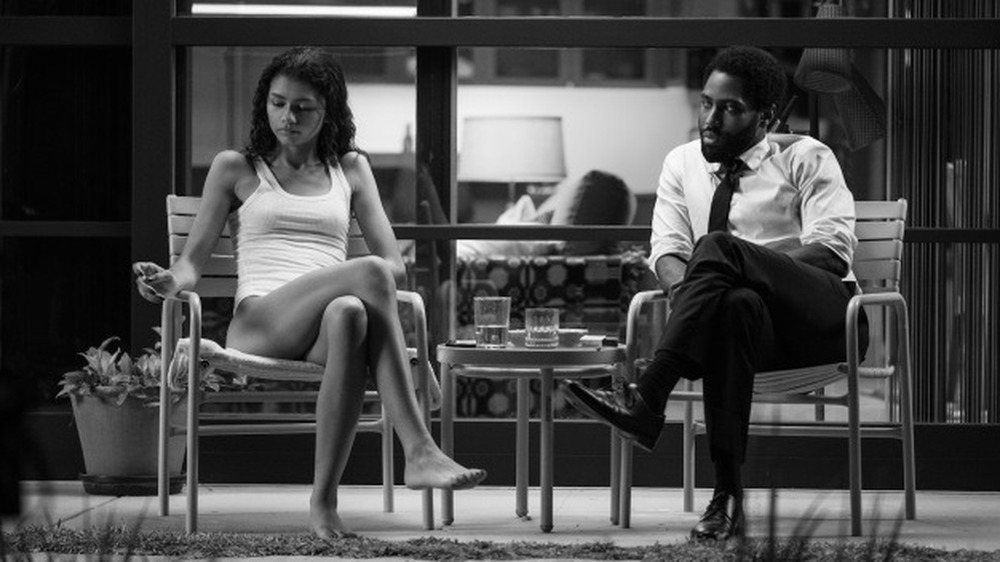The Ending Of Malcolm & Marie Explained
On February 5, 2021, Netflix released its buzziest new film, anchored by two rising stars and crafted by one of television's biggest hitmakers.
Malcolm & Marie, a new film from Euphoria director Sam Levinson, features only two performers, but they're two of the most popular actors around at the moment. The story of a filmmaker and his girlfriend who have a lengthy, emotionally intense argument after his latest film premieres to rave reviews, Malcolm & Marie — which was shot entirely during quarantine — hinges entirely on the leading performances from John David Washington (Tenet, BlacKkKlansman) and recently minted Emmy winner Zendaya (Levinson's leading lady and collaborator on Euphoria), who, naturally, play Malcolm and Marie, respectively.
As the central couple, Malcolm and Marie dance around their problems for as long as they can, but eventually — amidst a searing discussion of modern film criticism, how critics view Black cinema, and Marie's difficult life experiences — their long-simmering tension explodes, leading to a fight that spans an entire evening. Set off by the fact that Malcolm neglected to thank her at his speech during the premiere, Marie is quietly enraged, sending Malcolm into a tailspin that culminates in the couple alternately hurling insults at one another or locked in a passionate embrace. Here's the ending of Malcolm & Marie, explained.
The role of criticism in Malcolm & Marie
Throughout the film, talented writer-director Malcolm rails at critics who he believes simply don't understand his work, complaining that film critics — particularly an unnamed writer only referred to as "the white lady from the L.A. Times" — pigeonhole his films no matter what, claiming that all of them are hyper-political simply because they focus on Black lives. However, as he waits for reviews of his unnamed film that wowed audiences just before the film begins, he goes on a series of rants, clearly critiquing the role that movie criticism should play in a film's tory.
Malcolm's repeated point is crystal clear: the story of a film should be decided by its creator, not those who use specific lenses and their own biases to view it. Much to Malcolm's chagrin, those critics chime in anyway, and even when his film ultimately receives a rave from the L.A. Times, he still flies into a rage, angry that the critic once again missed the point he was trying to make. This shines a light on Malcolm's actual problem: his defensive nature, which prevents him from hearing any of the critiques leveled at him not just by critics, but by Marie herself, who has some valid points about his creative process and the product that comes from that. While Malcolm is critiquing Marie for her critiques, he misses the point entirely — armed with the iron-clad belief that his viewpoint is the only one that matters, Malcolm is completely incapable of introspectively looking at not just his work, but his relationship with Marie, his tendency to go on the defensive, and his own psyche, which circles back around as Marie makes her final plea at the film's close.
Malcolm & Marie questions who really owns their own story
At first, it seems as if Marie is simply upset that Malcolm forgot to thank her in his speech — which is understandable on her part — but in reality, it's much deeper than that. As a former addict herself, Marie is incensed that not only did Malcolm seemingly adapt her life story for his film, but he didn't even ask her, an actress, to play the lead role of Imani.
Malcolm — in the most hurtful way possible — tries to explain that Imani is an amalgamation of many of his former lovers, rubbing his past flames in Marie's face and telling her he didn't give her the role because she doesn't "want" it enough. Ultimately, this backfires on him, culminating in a horrifying scene where Marie grabs a knife, tells him she's still taking painkillers, and begs him to tell her where the pills are... until it turns out that she's simply acting. However, this part of Malcolm and Marie's argument brings up an interesting question: who really owns this particular story? Marie wanted to collaborate with Malcolm to tell it, and was left out in the cold as a result, but he brought it to life for her; does Marie's story belong to her anymore, or does it belong to Malcolm now that he made it into art?
Ultimately, when Marie delivers her final monologue about all the reasons that she deserves Malcolm's gratitude, that question is answered. In taking her story and then forgetting to even thank her in his speech, Malcolm has erased Marie's agency from her own life and experiences, robbing her of a journey that has made Marie who she is. As for his justification that she didn't really "want" the part, this is clearly a falsehood Malcolm tells himself to ease his own guilt — he knows, deep down, that he stole her story for his own gain, but is unable to grapple with it either by himself or when challenged by Marie.
The ending of Malcolm & Marie leaves their fate up in the air
With their argument still seemingly raging, Marie lays her heart bare to Malcolm, returning to the issue of the forgotten "thank you" and telling him that he needs to thank her for so much — for taking care of him, for being his partner, for being clean, and much, much more. As they get into bed together, Malcolm apologizes and tells her, "Thank you," but it still doesn't seem as if anything is resolved when they go to sleep.
When Malcolm wakes up, Marie is standing in the large backyard of their picturesque California home, silently looking into the distance. Malcolm joins her, but their fate is unclear. If this is their final fight as a couple, it would be understandable, but if they intend to stay together, they obviously have a difficult road ahead. After a night where both Malcolm and Marie seek out the most hurtful possible things to say to one another, there's no easy path forward... and ultimately, Levinson's film leaves that path up in the air.
Unless Levinson himself decides to address the ending, we may never know, but when you watch the two lovers at odds stand in the backyard, one details sticks out: they're looking at the same fixed point in the distance. If they were looking in opposite directions, it could indicate that their problems can't be resolved, but the fact that they're looking in the same direction could very well mean that they still share basic values and want to "look" towards a future with one another, and can — and will — move on from the night's fight.
Malcolm & Marie is available to stream on Netflix now.



